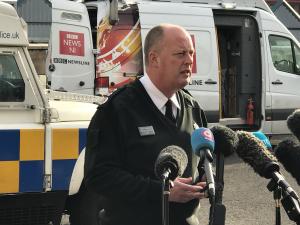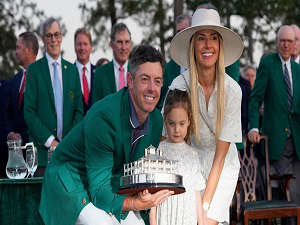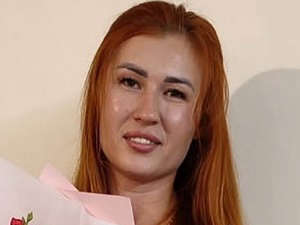
By David Young PA
Northern Ireland's police chief has expressed frustration at a political stalemate over introducing new mechanisms to deal with the legacy of the Troubles.
George Hamilton said he aired his feelings during a meeting with Sinn Fein at Stormont.
During the exchanges the republican party challenged the chief constable on his efforts to clamp down on the violence and criminality of the UDA, and also on the PSNI's failure to complete a probe into the historic activities of the UVF's notorious Glenanne gang.
After the meeting, Mr Hamilton stressed a new independent Historical Investigations Unit, as outlined in the 2014 Stormont House Agreement, has still not be created due to the wider political impasse at Stormont.
He said: "I was able to share my concern and indeed my frustration at the political stalemate that means that we haven't got the Stormont House institutions up and running.
"I want to see the Historical Investigations Unit established, I've been a long time advocate and supporter of that. Whatever help we can bring to the table around professional policing advice to that we will do that.
"We recognise the need for independence around these legacy investigations and whatever we can do to assist with that then we are happy to work with Sinn Fein and the other political parties to that end."
During the discussions inside Stormont Castle, Sinn Fein's Michelle O'Neill highlighted the recent court judgment that criticised the PSNI for a failure to conduct an overarching examination of the extent of alleged state collusion with the Glenanne gang.
The gang was a unit of the UVF that counted renegade police and Army personnel among its members. It was responsible for around 130 murders in the 1970s and 1980s.
Outside Stormont Castle, Mrs O'Neill said: "We need to see action from the PSNI because clearly the fact that over 130 people lost their lives at the hands of the Glenanne gang means the PSNI need to do their job in terms of bringing together all the evidence that's there, not just in individual cases but looking at it in terms of the whole picture."
Sinn Fein called for the meeting in the wake of the UDA murder of Colin Horner in Bangor in May.
Mr Horner, 35, was shot dead by a lone gunman moments after he had put his three-year-old son in the back of his car. The murder has been linked to a feud among loyalist rivals.
He was a friend of fellow loyalist George Gilmore, who was shot dead in Carrickfergus in March.
Mrs O'Neill said more action against the terror group was needed, adding: "They are holding communities to ransom, particularly around racketeering, drugs and extortion."
Mr Hamilton said he provided Sinn Fein assurances over the level of resources it was committing to combating the UDA.
Sinn Fein also raised concerns about hate crime incidents around loyalist 'Eleventh night' bonfires in July, where effigies and posters of the party's politicians, including a coffin with a picture of the late Martin McGuinness's face, were attached to the fires.
Mr Hamilton described the incidents as "disgraceful and despicable" but said officers faced challenges in identifying those responsible.


 Police investigating Arson Attack in North Belfast
Police investigating Arson Attack in North Belfast
 McIlroy honours omission came despite Stormont nomination
McIlroy honours omission came despite Stormont nomination
 Police seize ‘significant quantity’ of drugs following chase
Police seize ‘significant quantity’ of drugs following chase
 Woman dies in hospital after road crash in Co Fermanagh
Woman dies in hospital after road crash in Co Fermanagh